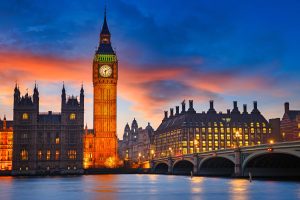Yesterday’s Budget had no mention, let alone additional spending commitments, to help end fuel poverty or improve domestic energy efficiency.
If we are honest, this is not unusual and in some strange way, of no immediate concern. The Chancellor is legally obliged to have a Budget each year but on the 25 November, he had already revealed his Spending Review, setting capital spending limits for UK Government departments for the forthcoming year (2021-22) and beyond. Building on the £3bn committed in last year’s Summer Statement, the Chancellor had already committed £320 million of funding for an extension of Green Home Grant and £150m to be spent on the Homes Upgrade Grant between 2021-22 to “help some of the poorest homes become more energy efficient”. Following these key positive commitments, and a flurry of other positive announcements (the Energy White Paper, 10-point plan and Fuel Poverty Strategy,) today’s Budget wasn’t the usual all important set piece spectacle. There were however three vital exceptions.
Following its launch in September there has been significant interest in the Green Homes Grant by members of the public. Over 100,000 applications have been received from September to January, from over 70,000 households. Regrettably, due to significant challenges with the administration of the scheme, most low-income households who have applied are still waiting for assistance and continue to live in cold, damp homes. Shockingly, only 800 low-income homes have received their vital energy saving measures from over 30,000 applications. In addition, many installers who have taken part in the scheme have been unable to get paid by the scheme administrator.
As a result, one of the key areas of focus was the future of the scheme. In Parliament, Ministers have recently said that the scheme would continue, with the £320m for the next year but without rolling over the unspent money for vouchers. This has provoked an understandable backlash, with some papers suggesting the Chancellor might even scrap the scheme for good. While the Budget does not confirm this either way, a treasury spokesman seems to have confirmed that it still stands. but crucially with no commitment for the unspent budget to be made available beyond the end of March to keep homes warmer and help us build back better. This key battleground will drag on.
And then there is the not so small matter of the other promised investment for domestic energy efficiency. The Conservative Party manifesto pledged £2.5bn in the shape of Home Upgrade Grants to combat fuel poverty, and £3.8bn in the shape of a Social Housing Decarbonisation Fund. As noted above, the first year of both schemes has been committed in the latest Spending Review, but there was no reference to the remainder of the funding in this Budget. NEA has called for certainty on the future years of these schemes, something that is now urgently needed in the eagerly awaited and upcoming Heat and Buildings Strategy. This should set out in more detail but today’s lack of detail on future funds for HUG, will put even more emphasis on future fiscal events.
Finally, alongside countless other organisations, NEA has however campaigned to ‘Keep the Lifeline’ of the £20 week uplift to Universal Credit. This increase in income has been vital for millions of people to keep warm and well this winter. For the uplift to stop in the middle of a pandemic would have been unimaginable for the millions of people that benefitted from it. Thankfully, the Chancellor committed to extending it, but, with a sting in the tail; the lifeline will only survive for another six months. That means that it will/may come to an end in October, just as Autumn starts to bite and keeping our homes warm becomes even more pressing. Not a good time to see your income drop so significantly. As the Resolution Foundation have shown, the real, inflation adjusted value of unemployment related benefits has actually shrunk since the late 1990s. An increase is overdue. Now was the time to make the uplift permanent not defer the decision for another day.
So, all is not as rosy and three key issues have been deferred. With every passing day, the calls for fiscal restraint will grow. This makes our job tougher but all the more vital.
Matt Copeland
Policy Manager










